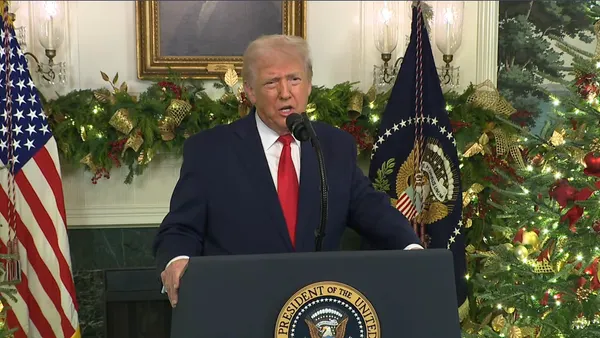Title I funding for schools educating students from low-income families would face a severe 80% cut under a proposal for fiscal year 2024 by the Republican-led House Appropriations Committee. Republicans on the committee said in a statement Thursday the decrease is justified because of unspent federal COVID-19 emergency funds.
"Further investments will not be provided until these funds are used responsibly," the statement said.
In a swift Friday morning session, the House Appropriations' Labor, Health and Human Services, Education, and Related Agencies Subcommittee cleared the bill for full Appropriations Committee consideration at a later time.
Democrats on the committee said the legislation is an "assault on education and job training, decimates research funding, and abandons ongoing public health crises." In a Friday statement, they also said the cuts would lead to a loss of 220,000 classroom teachers.
Overall, GOP committee members are recommending a 15% decrease in spending for the U.S. Department of Education in FY 2024, citing the need to eliminate programs that "do not fulfill their core mission" and that "are duplicative, or narrowly tailored to a small set of recipients," according to the Republicans' statement.
The Republican-led committee is proposing $67.4 billion for the Education Department, which is $12.1 billion below the FY 2023 spending level and $22.6 billion below President Joe Biden’s budget request.
Another targeted cut would be for the Office for Civil Rights, where the committee proposed a 25% drop. Also on the chopping block are "teacher training programs that send teachers to expensive weekend workshops," according to the statement.
The committee's spending plan, however, would maintain spending levels for:
- Special education programs.
- School safety programs.
- Charter schools.
- The Impact Aid Program.
- Career and technical training grants that support local programs for students who are not seeking a college degree.
The Association for Career and Technical Education and Advance CTE — two organizations that promote CTE activities and leadership — said in a statement that while they appreciate the recommendation to sustain CTE funding, they are "extremely concerned" about cuts to other education and workforce development programs.
"CTE does not operate in a silo," the statement said. "Developing a robust, diverse workforce equipped with in-demand skills that can adapt to the evolving needs of employers requires meaningful and sustained investments throughout the wider education and workforce development ecosystem."
Augustus Mays, vice president for partnerships and engagement for The Education Trust, an organization that works to reduce racial and economic barriers, said in a Thursday statement, “Make no mistake about it: the proposed cuts from this ultra-conservative partisan bill effectively creates a class-based system for many students who are already seated at the intersection of race and poverty."
"As the nation continues to recover from the pandemic, stripping our students — especially those of color and from low-income backgrounds — of vital resources at this crucial time is the height of irresponsibility," Mays said.
In a budget deal reached in June to avoid a debt ceiling default, lawmakers and the White House agreed to flat funding for education programs for FY 2024.
The Senate has not yet released its education spending plan for next year. The federal FY 2024 fiscal year begins Oct. 1.













